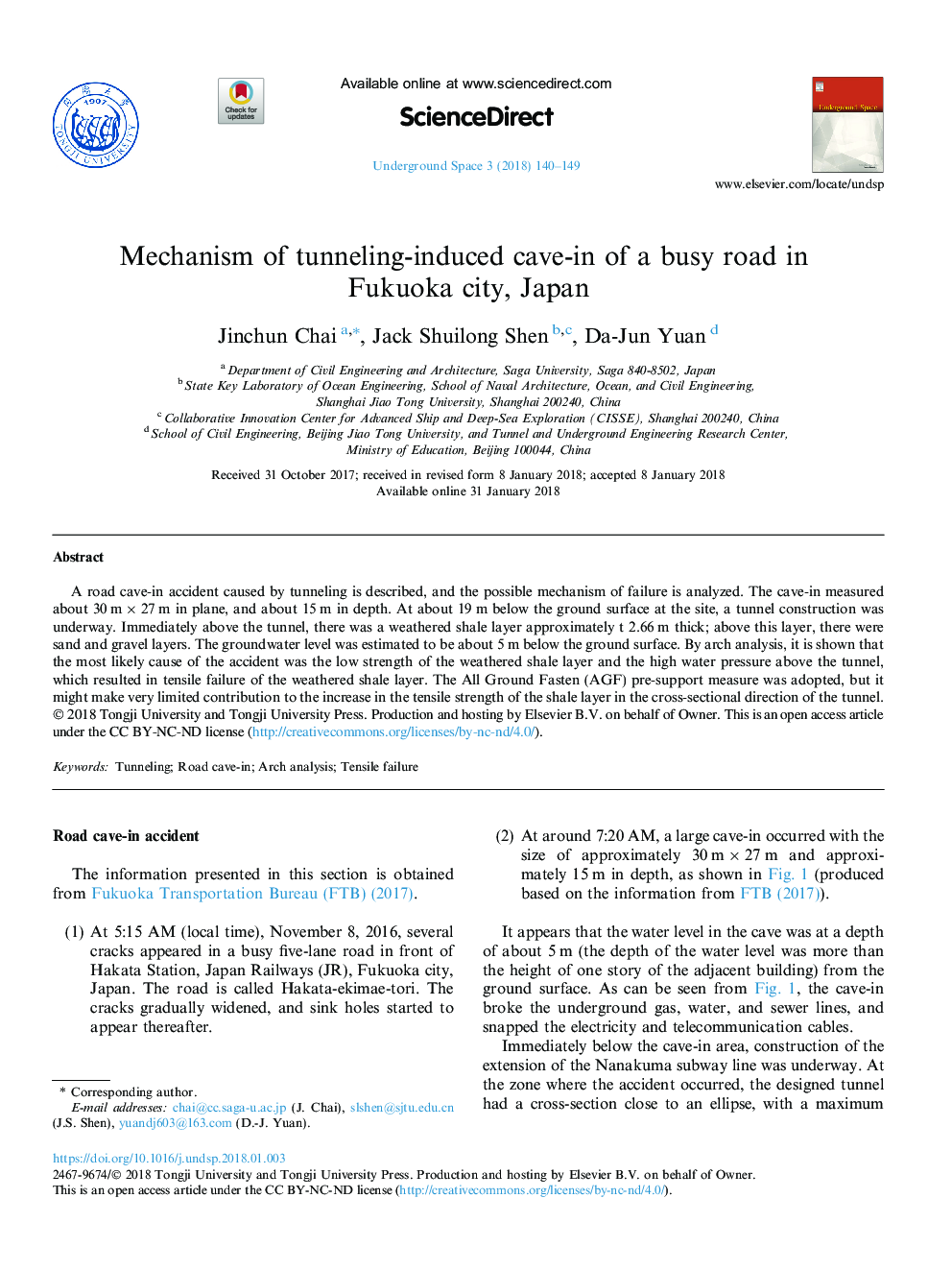| Article ID | Journal | Published Year | Pages | File Type |
|---|---|---|---|---|
| 6784377 | Underground Space | 2018 | 10 Pages |
Abstract
A road cave-in accident caused by tunneling is described, and the possible mechanism of failure is analyzed. The cave-in measured about 30â¯mâ¯Ãâ¯27â¯m in plane, and about 15â¯m in depth. At about 19â¯m below the ground surface at the site, a tunnel construction was underway. Immediately above the tunnel, there was a weathered shale layer approximately t 2.66â¯m thick; above this layer, there were sand and gravel layers. The groundwater level was estimated to be about 5â¯m below the ground surface. By arch analysis, it is shown that the most likely cause of the accident was the low strength of the weathered shale layer and the high water pressure above the tunnel, which resulted in tensile failure of the weathered shale layer. The All Ground Fasten (AGF) pre-support measure was adopted, but it might make very limited contribution to the increase in the tensile strength of the shale layer in the cross-sectional direction of the tunnel.
Keywords
Related Topics
Physical Sciences and Engineering
Earth and Planetary Sciences
Geotechnical Engineering and Engineering Geology
Authors
Jinchun Chai, Jack Shuilong Shen, Da-Jun Yuan,
